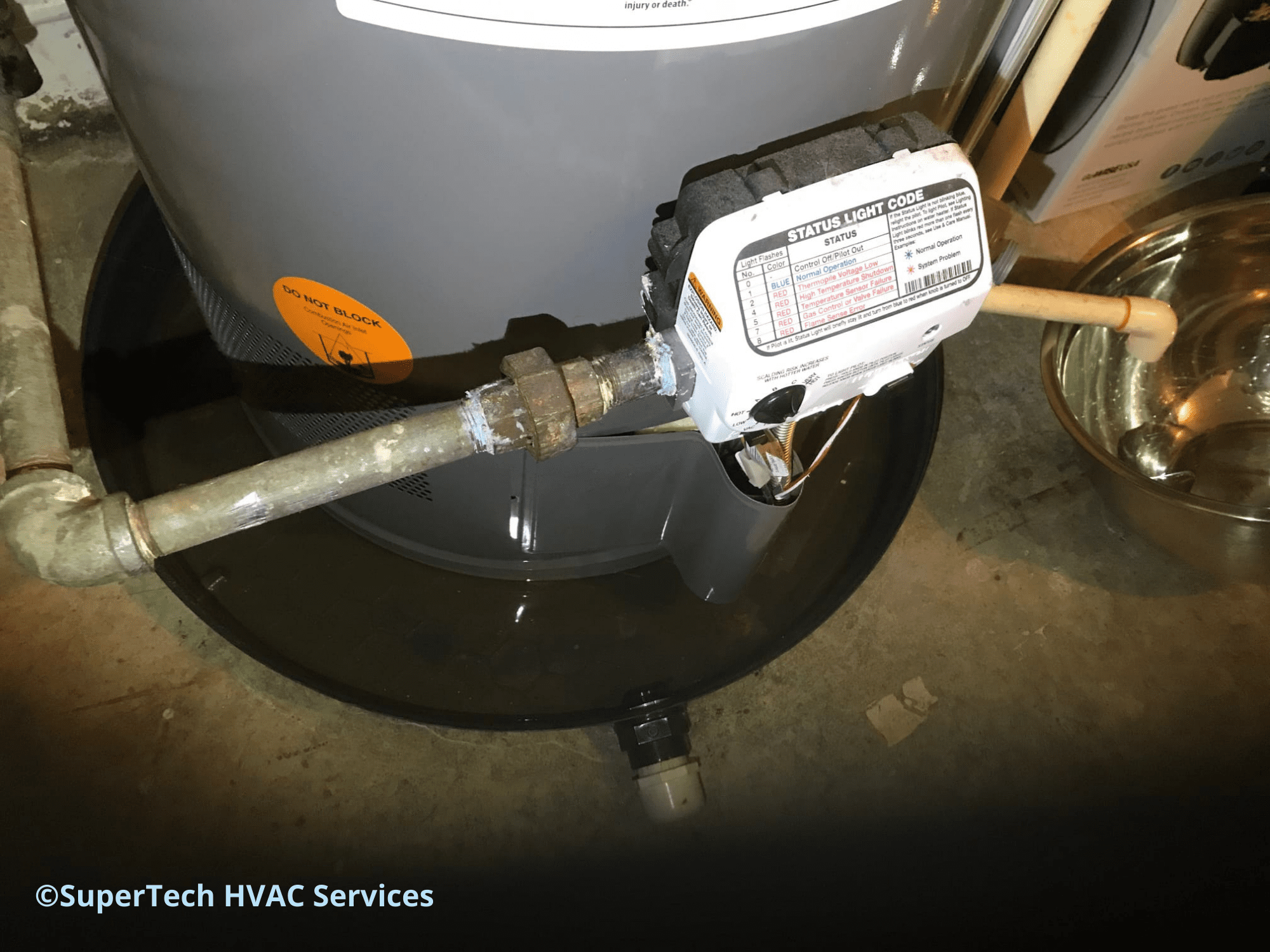Action Plan For Standard Heater Malfunctions
Action Plan For Standard Heater Malfunctions
Blog Article
This article listed below in relation to Water Heaters Problems is particularly stimulating. Don't miss out on it.

Visualize beginning your day without your regular hot shower. That already establishes an inadequate tone for the rest of your day.
Every home requires a reliable hot water heater, yet just a couple of know exactly how to manage one. One easy means to maintain your water heater in leading form is to check for mistakes consistently as well as fix them as quickly as they appear.
Bear in mind to shut off your water heater prior to sniffing about for faults. These are the water heater mistakes you are probably to run into.
Water as well warm or too chilly
Every water heater has a thermostat that figures out just how hot the water gets. If the water entering into your house is as well warm regardless of setting a practical optimum temperature level, your thermostat could be faulty.
On the other hand, too cold water may be because of a fallen short thermostat, a busted circuit, or inappropriate gas circulation. As an example, if you make use of a gas hot water heater with a busted pilot burner, you would certainly get cold water, even if the thermostat is in excellent condition. For electrical heating units, a blown fuse might be the culprit.
Not nearly enough hot water
Water heaters can be found in several dimensions, relying on your hot water demands. If you lack hot water before every person has had a bathroom, your hot water heater is too tiny for your family size. You must consider mounting a larger hot water heater storage tank or going with a tankless water heater, which occupies less room and is a lot more durable.
Odd sounds
There are at the very least 5 kinds of noises you can learn through a water heater, however one of the most usual interpretation is that it's time for the water heater to retire.
Firstly, you need to be familiar with the normal sounds a hot water heater makes. An electric heating system might sound different from a gas-powered one.
Standing out or banging noises typically mean there is a piece of sediment in your containers, as well as it's time to cleanse it out. On the other hand, whistling or hissing noises might just be your shutoffs allowing some pressure off.
Water leaks
Leaks can come from pipelines, water connections, valves, or in the worst-case circumstance, the storage tank itself. Over time, water will rust the tank, as well as locate its escape. If this happens, you require to replace your hot water heater as soon as possible.
However, prior to your change your entire storage tank, be sure that all pipes remain in location and that each valve functions perfectly. If you still require assistance determining a leak, call your plumber.
Rust-colored water
Rust-colored water means among your water heater parts is corroded. It could be the anode pole, or the tank itself. Your plumber will have the ability to recognize which it is.
Lukewarm water
Despite how high you set the thermostat, you won't obtain any kind of warm water out of a heater well past its prime. A water heater's effectiveness may minimize with time.
You will certainly additionally obtain lukewarm water if your pipes have a cross connection. This indicates that when you activate a faucet, warm water from the heating system moves in alongside normal, cold water. A cross link is very easy to area. If your hot water faucets still follow shutting the hot water heater valves, you have a cross link.
Discoloured Water
Rust is a major reason for unclean or discoloured water. Rust within the water tank or a stopping working anode rod can create this discolouration. The anode pole secures the storage tank from rusting on the within and should be examined yearly. Without a rod or a correctly functioning anode pole, the hot water rapidly wears away inside the tank. Call an expert water heater service technician to determine if changing the anode pole will repair the issue; otherwise, change your hot water heater.
Conclusion
Ideally, your water heater can last ten years prior to you require a change. Nevertheless, after the 10-year mark, you might experience any one of these mistakes a lot more consistently. Now, you need to include a new water heater to your budget.
How To Troubleshoot 3 Common Water Heater Problems in Twin Cities
The Water Heater Is Leaking
A leaky cold water inlet valve A loose pipe fitting A leaky temperature and pressure relief valve A corroded anode rod A cracked tank Turn Off Your Water Heater:
Shut off your gas water heater by turning the gas valve on the unit to the “OFF” position. Shut off your electric water by switching its power off at your electrical panel. Look for a two-pole breaker labeled “water heater” and turn it to the “OFF” position. Move the ball valve connected to the water heater to be perpendicular to the piping at a 90° angle. Look for the Leak:
Depending on whether the water is coming from the tank's top or bottom, you’ll want to look for the leak in different locations.
If the leak comes from the top of the tank, carefully look for water escaping from the cold water inlet valve or loose pipe fittings. Rusted hot and cold water valves can have loose connections with the tank, with water leaking out of them.
https://mspplumbingheatingair.com/blog/how-to-troubleshoot-3-common-water-heater-problems
As a fervent person who reads on Common Problems with Your Home Water Heater, I imagined sharing that excerpt was appropriate. Do you know about somebody else who is interested in the niche? Please feel free to promote it. Thank-you for your time invested reading it.
Trust our expertise. Report this page